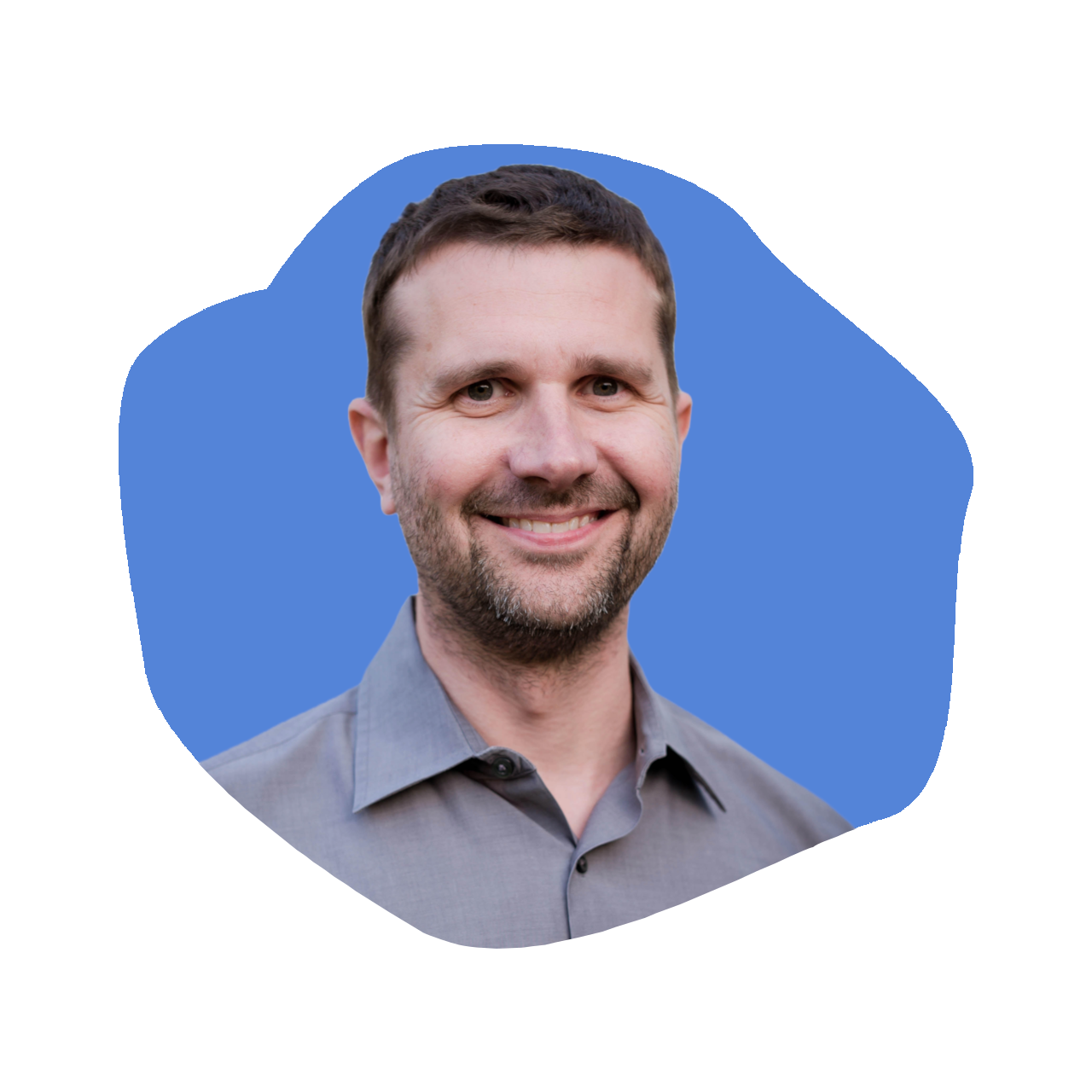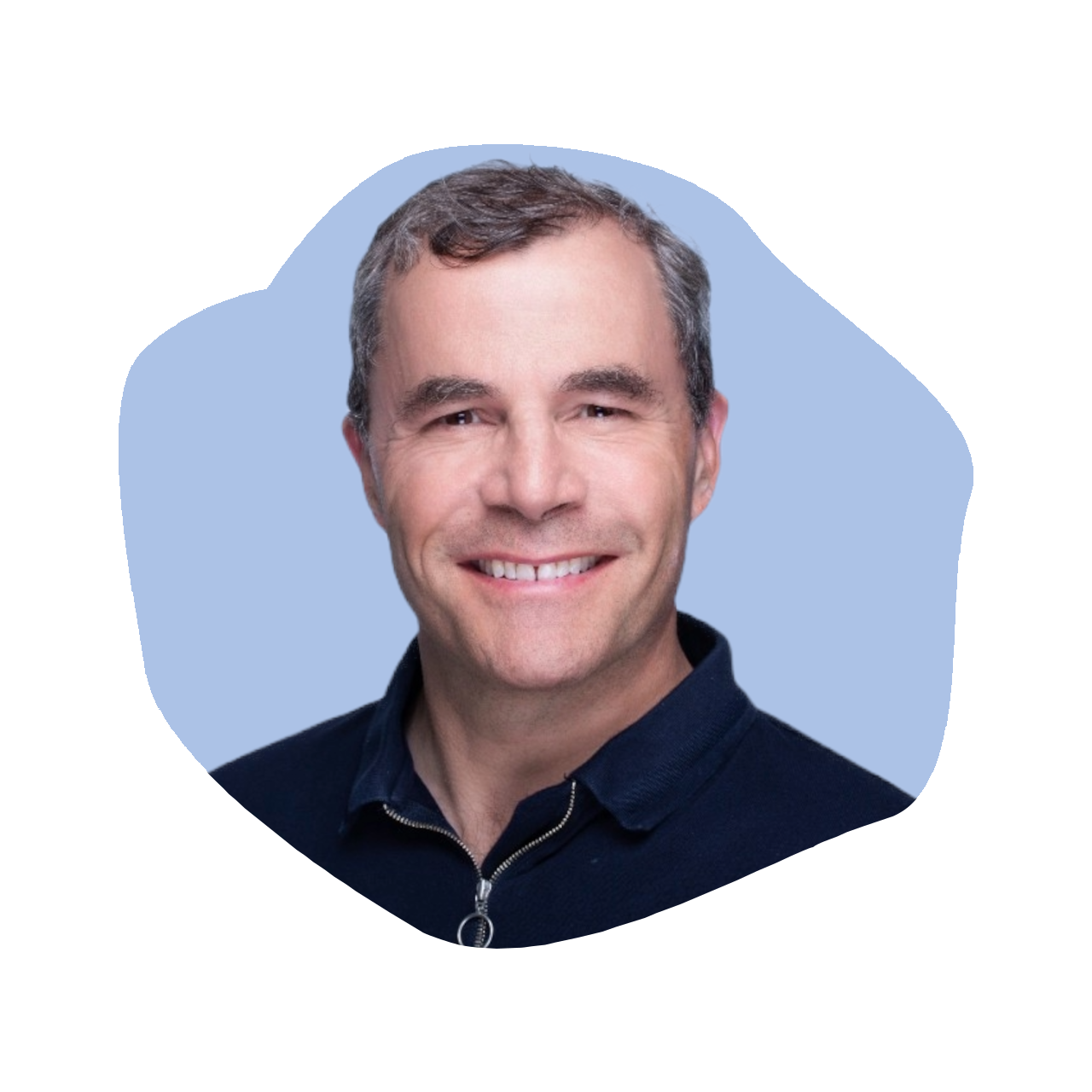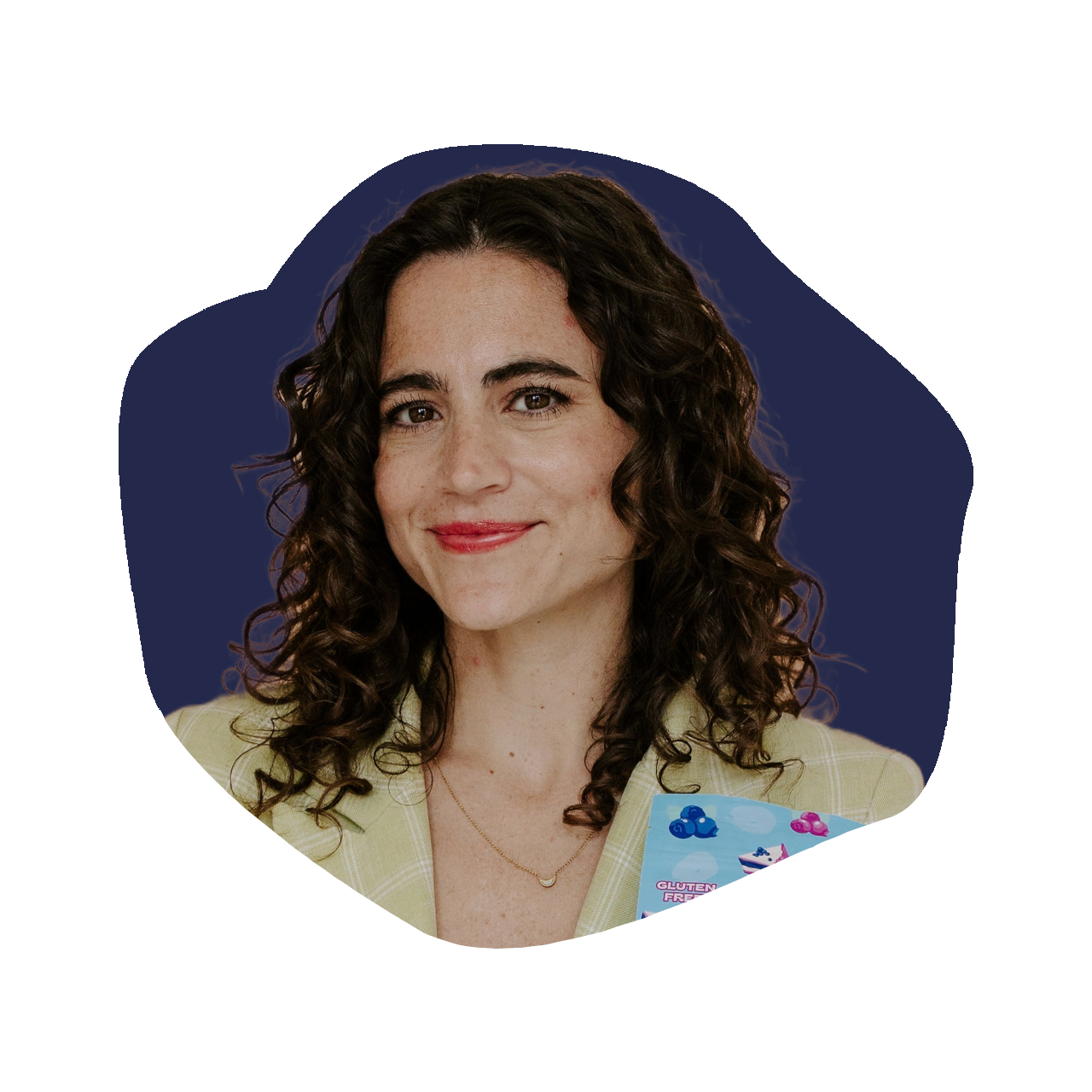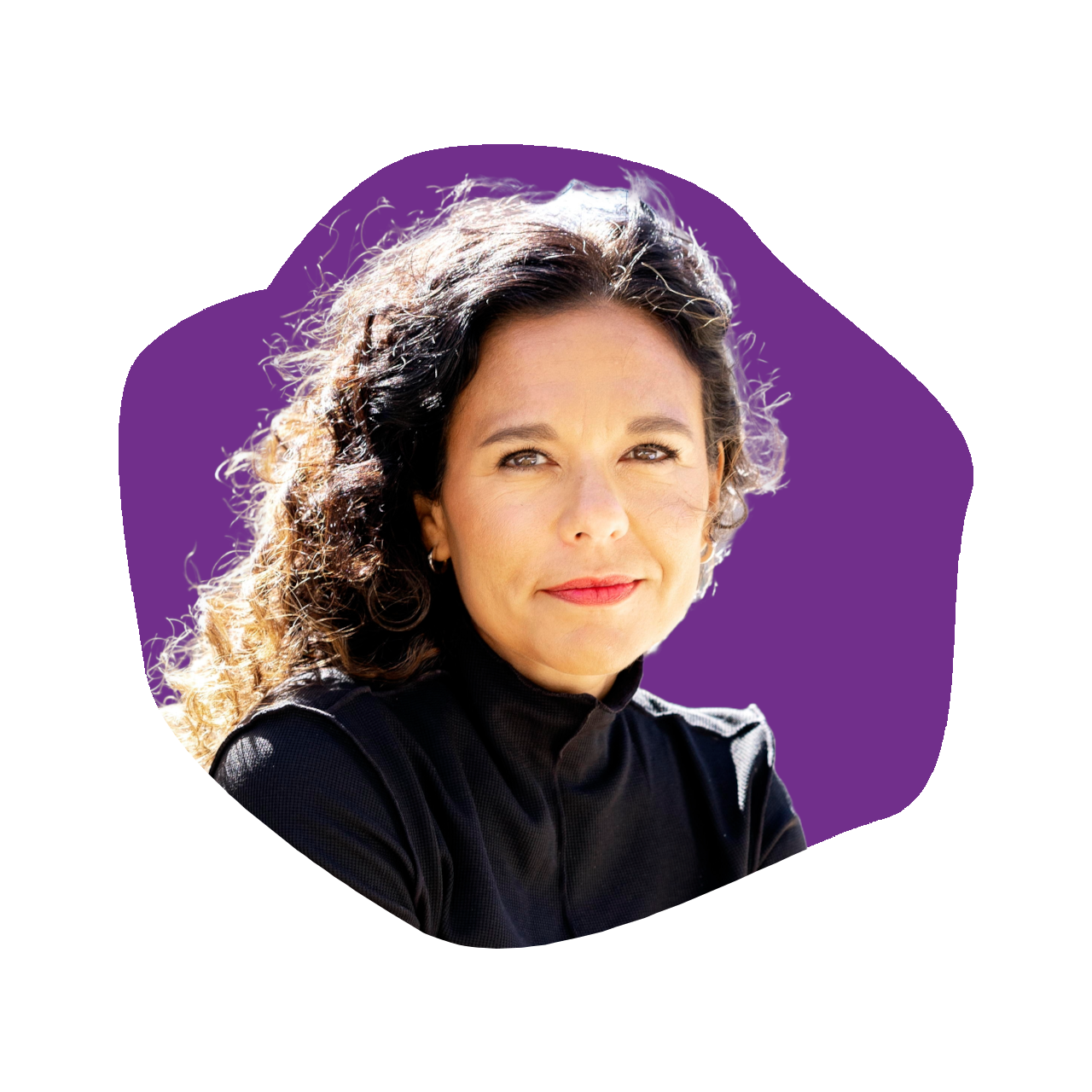Henk Rogers: Tetris & Blue Planet Alliance
Episode 434
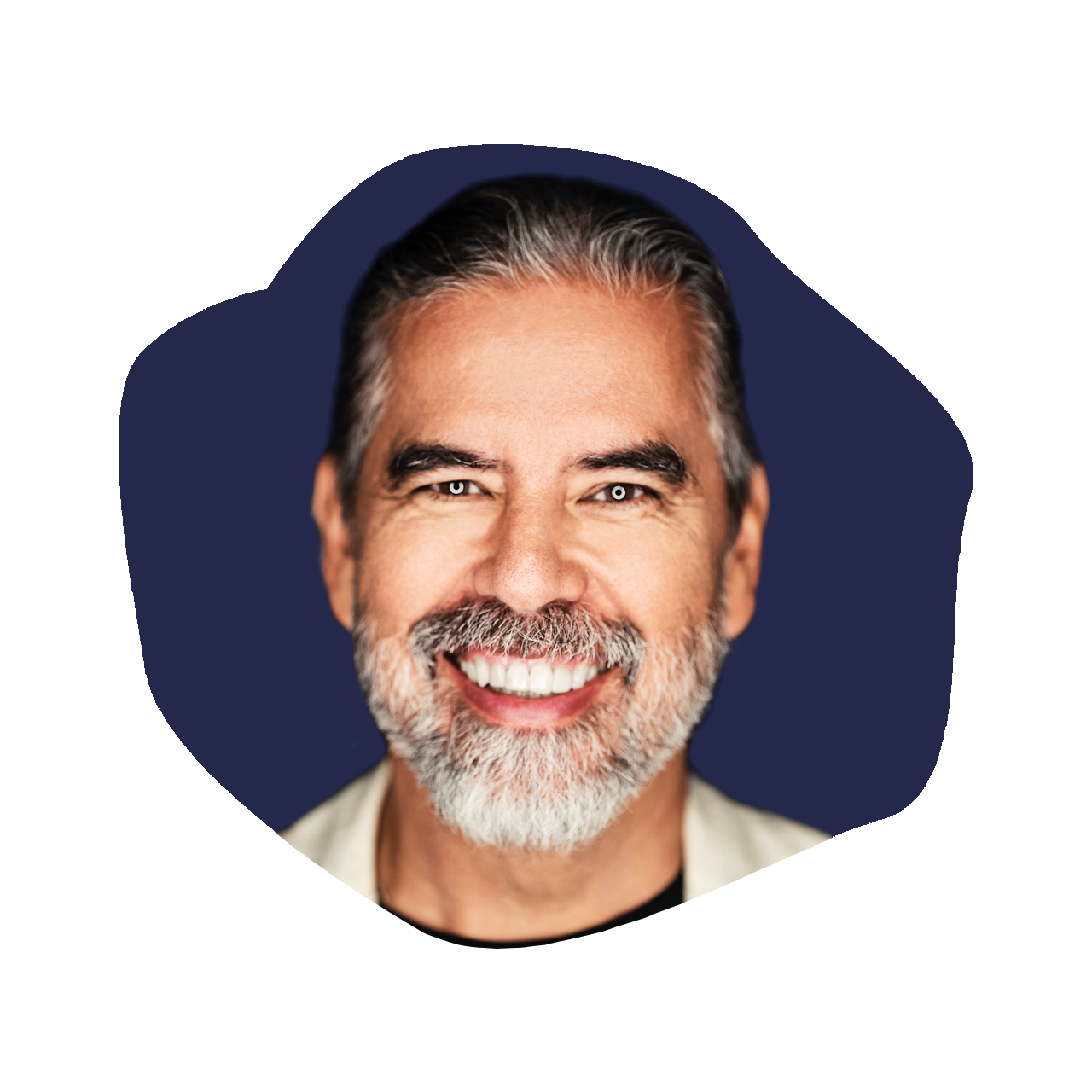
In this outstanding episode, Henk Rogers, famous for Tetris and now Blue Planet Alliance, sits down with Kara Goldin to discuss his journey as a serial entrepreneur. Listen in as Henk shares his journey as a true pioneer, visionary and purpose-driven entrepreneur who co-founded Blue Planet Software, introducing the iconic video game Tetris to the world and since then, spearheading the clean energy movement in Hawaii through the Blue Planet Foundation. Plus we hear more about his take on the impact that we can all make to make this world a better place, an absolute essential element for any founder to zone in on. This is a not-to-be-missed episode in entrepreneurship that you don’t want to miss. On this episode of #TheKaraGoldinShow.
Resources from
this episode:
Enjoying this episode of #TheKaraGoldinShow? Let Kara know by clicking on the links below and sending her a quick shout-out on social!
Follow Kara on LinkedIn – Instagram – X – Facebook – TikTok – YouTube – Threads
Have a question for Kara about one of our episodes? Reach out to Kara directly at [email protected]
To learn more about Henk Rogers, Tetris and Blue Planet Alliance:
https://www.instagram.com/henkrogers/
https://www.linkedin.com/in/henkrogers/
https://www.youtu.be/-BLM1naCfME
https://www.tetris.com
https://www.blueplanetfoundation.org/
https://www.blueplanetenergy.com/
https://www.henkrogers.com/
Transcript
Kara Goldin 0:00
I am unwilling to give up that I will start over from scratch as many times as it takes to get where I want to be I want to be, you just want to make sure you will get knocked down. But just make sure you don’t get knocked down knocked out. So your only choice should be go focus on what you can control control control. Hi, everyone, and welcome to the Kara Goldin show. Join me each week for inspiring conversations with some of the world’s greatest leaders. We’ll talk with founders, entrepreneurs, CEOs, and really some of the most interesting people of our time. Can’t wait to get started. Let’s go. Let’s go. Hi, everyone, it’s Kara Goldin from the Kara Goldin show. And I’m so excited to have my next guest here. He’s kind of a movie star. No, not really, but a celebrity, but not really as, as he and I were just chatting about. But we have Henk Rogers, who was who is from Tetris. You may know him from that, but also is the founder of an incredible, incredible initiative called Blue Planet Alliance. And you need to know about this and what he is doing. But he’s also a co founder of the incredible company Blue Planet software. And we’re going to talk about how all of this connects to Henks journey overall. But he’s consistently shown his unwavering commitment to creating positive change, and has harnessed his reach and influence to advocate for environmental sustainability, his mission to revolutionize how we generate store and use power is reshaping the landscape of renewable energy overall. And as I mentioned, that little company Tetris that is, hot, hot, hot story lately, especially since it’s come on Apple TV plus exclusive definitely has brought Tetris into the limelight once again. So we’re gonna get to hear a little bit more about that there’ll be, this is going to be an amazing, amazing discussion. So Henk, welcome. Thank you for having me. Yeah, very excited to have have you here. So before we get into all of the amazing work you’re doing with the foundation and the Alliance, can we go back to the early days of Tetris? And how did you first come across this game? And what drew you to its potential?
Henk Rogers 2:35
Yes, so my background is I’m a computer game designer. And I wrote the first role playing game in Japan and ended up with a publishing company. So you know, I wrote two games for the, for the company for my own company. And then I started traveling around the world looking for games to bring to Japan. And, you know, I always had a had a rule that I would never have anything to do with the game that I didn’t want my children to play. Now, this is a kind of, how can I say, this is the kind of rule of thumb that everybody in the business should have? Because there’s so many instances where people are creating games that are just horrible. And Tetris is an example of a of a game that was that people love to play that everybody loves to play. I found it at the Consumer Electronics Show in Las Vegas in 1988. And, yeah, I thought this is a great game, because I was hooked on it at at right there at the show. When I brought samples back to Japan, all my people in the office got in, you know, got hooked on it. And so I went after all the rights. So that’s why, you know, I ended up going to the Soviet Union in 1989, to get the Gameboy rights, and met the author of Tetris, who is a Russian guy, and he is my partner till today.
Kara Goldin 3:53
That’s why I’ll so you were the co founder of Blue Planet software, I guess, at that point. And you, I’d love to hear that story. So the one about going into the Soviet Union and the 1980s, I can only imagine and negotiating the rights. I mean, what challenges if you can even name the many or even one of them? I can only imagine.
Henk Rogers 4:23
I was totally breaking the law by going to the Soviet Union and talking to people, or especially people in some kind of an official government organization. I had no right to do any of that on a tourist visa. So that’s the start of it. And it was it was right at the beginning of glasnost and perestroika, so other people were taking chances are at that point in time, I mean, you can imagine what it’d be like if I went to North Korea today, and try to find a ministry and as walk in the door unannounced uninvited Did and tried to do some kind of business? Oh my god, I would be able to, I would be on the list of people that the US is trying to get
Kara Goldin 5:07
back. Right? We may not hear from you again. Exactly. Yeah. That’s crazy. So what was probably in your memory thinking back on that day? You know, what was? Why did you do it? I mean, it’s it’s like scary. It’s risky. I mean, what what made you kind of think this is, this is what I’ve got to do. And I’ve got to stay here in order to do it, I would
Henk Rogers 5:33
say there’s a, there’s a good dollop of naivety involved. At that point in time. If I really knew how much trouble I could get into, then I might have thought twice, about going. But, you know, I’m a very, say, confident guy. So I was confident that I was going to be able to talk my way out of it. If I got got into some kind of trouble. Now, obviously, I managed to do that. Yeah, at the end of the day, and I’m very open and honest. And me, I was a breath of fresh air for the people that I was dealing with, because, you know, their experience with Westerners had been people that have come and took advantage of them because, well, the Soviet Union didn’t have intellectual property laws. So they, they didn’t really know what they were doing. And I helped them understand how it all works, how the business works, and I gave them a fair share of the money.
Kara Goldin 6:31
That’s so interesting. I never knew that story of Tetris. And obviously, the movie came out and, and lots of articles around it. I think that every entrepreneur has those stories that don’t get to be told on a regular basis, right? People just see the end product or service, but they don’t actually know the stories that come up along the way. So I loved hearing it. It just makes it made me love the brand even more just from hearing that story. But how do you explain its timeless appeal? I mean, you’re talking about the 80s. Right? I mean, this is a game and in a time when, you know, lots of games have come out since Tetris, but people are still very interested in playing the game that’s still successful. So what do you think is sort of the why is it still so popular?
Henk Rogers 7:25
Yeah, so So I think that the basic the core appeal of the game is order out of chaos. If you just let the pieces fall, and you don’t really do a good job, then you end up with chaos. But if you move the things the way they’re supposed to, then you create these little lines. And it’s kind of like, I don’t know, like creating lines of DNA or something life. Like that’s what life does. It creates order out of chaos. The order is DNA. The chaos is all the amino acids that float around our body. And somehow we arrange them into sequences. That actually makes sense. And Tetris does that. There’s no nobody gets hurt in Tetris is just a game. So I think that that is a very basic emotion in people is that they like to create order out of chaos.
Kara Goldin 8:23
So interesting. So I’ve had many entrepreneurs on here. I had Mitch Kapoor on not too long ago talking about lotus and I’m so curious, is there anything that you would have done differently? Looking back on your, your time? Building Tetris? Is there anything that like, you feel like there was this window and we were, we decided to go right, maybe we should have gone left?
Henk Rogers 8:53
Well, not so much in Tetris. But in business in general. You know, I had my publishing company in Japan and Electronic Arts came twice to try to buy my company and twice I said no, and twice, I should have said, Yes, I could have had a significant amount of money. Much earlier in my career. As it is I held on to it, I was going to build it myself and make it more valuable, valuable myself. And that just didn’t turn in. That didn’t turn out. I didn’t become a public company because I didn’t really understand how to be a public company, especially in Japan since I didn’t read or write Japanese. And so yeah, I had my chance to make a bunch of money early on and i i passed those chances. And so when I finally made my own company that was 100% me in us to make games for mobile phones. I’ve made up my mind from the get go if somebody offers me significant money, I’m gonna say yes. And I did.
Kara Goldin 9:57
Yeah, but I think it’s it’s hard When you’re faced with that, because I think it’s also, oftentimes your when you get those phone calls you are, you know, it’s when you’re on a high right with the company and things are going great. People don’t start calling when you know, it’s a disaster, right? And so you’re, it’s hard.
Henk Rogers 10:20
It’s if it’s a disaster, you can’t give away the company. Right? If you arise then then everybody wants to be a piece of the action. So, right. So company on the way up, not on the way down?
Kara Goldin 10:33
Well, I think that’s that’s a valuable, valuable lesson for sure. So take me on this journey than your, you’ve built an incredible legacy with with Tetris, and you are doing just fine. You have a great place in Kona, something happens in your life where you just decide that you’re going to focus on other things. Can you take us through that? Moment? Sure.
Henk Rogers 11:05
Sure. It’s, it’s before I had my place in Kota, but here’s what happened. I, some months after I sold my company for well, more money than I, then I ever would need, you know, means I never have to work again. And it’s a month after, and I find myself in the back of an ambulance with a heart attack. And firstly, I you know, I was being taken for observation. So wasn’t supposed to be so bad. But halfway to the hospital, the siren went on. So then I knew something was happening. And, you know, my doctor later said, yeah, that was, you know, getting into that ambulance was the best decision you ever made. Because if I if you’d have been more than seven minutes away, I wouldn’t have been able to save you. Anyway, I’m looking at the at the ceiling in the ambulance. And I’m, I’m thinking, you’ve got to be kidding me. I haven’t spent any of the money yet. After I did all that work. That was the first thing. But the second thing, I said, No, I’m not going I still have stuff to do. And in the recovery room, I got to thinking What did I mean by that? That was obviously a near death experience. And I said something that’s really important. So I worked backwards from the end of my life, what what is it that’s going to upset me if I didn’t do something about it? By the end of my life, and I came up with my bucket list. You know, I spent the next two, two weeks, figuring out my missions in life, and I’m on those missions today. And the first mission came to me, it was in the back of the newspaper. This is in Hawaii, the back of the newspaper now. And the article goes, Oh, by the way, we’re going to kill all the coral in the world by the end of the century. And I like That’s insane. What’s causing that. And that’s ocean acidification, what’s causing that it’s carbon dioxide going into the ocean, what’s causing that we are, we’re the cause of all this carbon dioxide that’s like going into nature, and wreaking havoc on the climate. So my mission number one is to end the use of carbon based fuel. And that’s all well, it’s put a sort of nine 90% of what I’m up to these days.
Kara Goldin 13:15
So carbon based fuel for those who are not familiar with that, how do you define that?
Henk Rogers 13:21
Yeah, carbon based fuel. First of all, there’s fossil fuel. So nature has sequestered carbon over millions of years. So 60 million years of carboniferous forest is buried. And that is where we get all of our coal. So we’re doing our best to take that 60 million years of buried carbon and sending it into the atmosphere. The same thing, similar thing with oil, and gas. So all those fossil fuels are, are carbon that nature has requested by burying it. And we’re taking it out of the ground and turning it into the atmosphere, like in geologic terms, all at once. And it’s the reason that temperatures are going. So high so fast. Now, it may not seem fast to us humans, because we don’t live for very, very long. But in in the scope of things is going really fast. We’re going to end up having serious amount of sea level rise, forest fires, deluge is droughts, all of those things, that’s all going to happen because we’re creating all this extreme weather. And we got to do something about it. Now the other carbon based fuel is living carbon, meaning plants. And there are some people that still like to use, like to talk about using, I don’t know corn to make ethanol or, or whatever. Something but this is this is living stuff. And they say, well, that’s carbon neutral because when we burn it, we grow new stuff and absorb the carbon again, we are not in a position to be neutral. Are we have to be carbon negative now. And so if nature wants to grow stuff somewhere, that should be a one way thing and nature should then bury that and turn it into soil. That’s, that’s the first step in sequence. sequestration. So we shouldn’t be taking any, anything that even resembles food and using it for fuel, because there’s so many other ways to make fuel. It’s, it’s ridiculous.
Kara Goldin 15:26
Yeah, absolutely. So you launched the Blue Planet Foundation, or blue planet Alliance, actually, a blue planet. Vision came first. Okay, so Blue Planet Foundation lead efforts to pass the USS first 100% renewable energy law. Terrific. I mean, amazing on many fronts. I’m sure that wasn’t easy. But tell me what you what did you set out to do? And what did you actually do?
Henk Rogers 15:54
So what I set out to do was to end the use of carbon based fuel in Hawaii. And what actually happened is, first of all, we have a deadline of 2045. And so everybody, you know, who’s in the movement of trying to fix climate change, says 2045, that’s too far in the future, it should be much sooner. But you know, we struggled to get 20 to 2045, the politicians were ready to give us 2050. And we want to 2040. And we settled for 2045. But what’s in fact happened is our goal in all of that was to reach 40%, renewable energy by 2030. We have already reached 40%, renewable energy in Hawaii. So things are moving much faster than anybody thought they would. I mean, the government utility, everybody. The reason that it’s moving so fast is we change the business model of the utility. So they can make more money by switching to renewables. Okay, if they can make more money, now, their shareholders and their management everybody gets on the side of, yeah, let’s do this faster. And so this is what we need to need to do in the rest of the world, everybody needs to make the decision to go 100% I like to date 2045, because it’s the 100th anniversary of the United Nations, that’s a great date for us to to fix everything 100%, we should fix everything by 2045. Because we we are now in the sustainable development goals. And that’s nice. But we’re not in a position to be sustainable right now. We have to fix everything that we’ve broken, we have to put back everything that we’ve stolen from nature, we have to fix the planet, then we can become sustainable. So I’d like the next 15 years, the first 15 years, the SDGs are 2015 to 2030. I’d like the next 15 years from 2030 to 2045 to be the regenerative development goals, it’s what we fix everything. And when we fix everything, then we get control of sea level rise, we get control of the climate. And basically we give back nature, we we build back the forests. Yeah, we regenerate nature can regenerate. We just have to get out of the way.
Kara Goldin 18:19
Yeah. It seems like I mean, I bet the challenge is really education, right? That this is just people think I’m not going to be able to actually make a difference. And I and I think that then they just give up and they don’t do what they should be doing. So I’d love to hear your perspective on that.
Henk Rogers 18:39
Right. So that was the situation that we were in, you know, with Blue Planet Foundation, and we’re trying to figure out how can we get a message to, you know, a vast number of people about electricity and about climate change. So we had elementary school children go door to door and exchange 300,000 light bulbs. In so doing, they would have a conversation with the people in the house, the adults in the house, this light bulb will cost you only 10% of what your incandescent light bulb is costing you in terms of electricity and therefore money. And also, if we reduce, if everybody reduces their their consumption of electricity, that will decrease the amount of carbon dioxide, and it will help solve the climate change problem. So even though you may think this is a small thing, but having this conversation, this, this is the conversation that everybody needs to have. I was recently in Korea and the politician asked me, so what should what kind of policies should I be working on in Korea? And I said, Well, this is what you need to do. You need to tell your children the truth about climate change, and then ask them what to do. because they’re not tied to any vested interest, they don’t need to get reelected. They don’t they don’t have a job. They just clearly can say, this is what you should do. And that is, in fact, what we need to do. We just don’t listen.
Kara Goldin 20:14
Yeah. Or we grab on to, you know, one piece, one soundbite and think that, you know, it’s all this, this whole carbon neutral, right? It’s actually to your point, we need to get carbon negative, because we’ve made too many mistakes. And I think I couldn’t agree more. So you, you’ve launched and scaled multiple companies, you obviously have entrepreneurial energy to you. And I feel like there are so many entrepreneurs out there that could actually create impact and would like to create impact. What do you think is like the first step for people thinking, wow, this is really cool. What Henk is doing? I mean, what do you think people should do? Like, if it is it along the lines of if you see something, say something or I don’t know, I mean, I’m so curious, I feel like so many people are just lazy, and they just don’t do it.
Henk Rogers 21:11
Don’t be so negative on people. First of all, if, if you’re an entrepreneur, you are making impact, whether you like it or not, I, I challenge you to think whether that impact is positive or negative. And if it’s a negative impact, then I challenge you to figure out how to make that negative impact into a positive one. Because in the future, young people that are growing up today, they are not going to put up with negative impact businesses. One of the things that we’re working on in the, in the alliance is to make the invisible visible to, to actually show the impact that each company has on the future of humanity and, and nature, it’s a rating system. You know, normally you see five stars, five stars tells you how good something is, whether it made somebody happy. But that doesn’t tell you whether it’s good for the future of humanity or nature, we need to actually look through a company and look at their entire supply chain, and how they make stuff and what happens to their stuff that they make after at the end of life. We need the whole the whole cycle. And then we decide, based on those numbers, we give them up to five planets, a perfect company would be five planets, completely circular economy company. So companies will have to compete to see who can become the most eco friendly in the future, or they will have to get out of the business out of that business. And transparency is the way to go. Recently, Europe passed a law which is amazing. Against greenwashing, a law against greenwashing, what it means is that a company cannot say about their their own stuff, look at what we’re doing. It’s so great. And we’re so green that allow because that’s greenwashing because then it’s a PR department picking things that the company is doing, and hiding the bad things that company is doing. And so and now it has to be done by independent companies to who will judge what, whether a company actually is green or not. So and so I think it’s coming down the pike. And everybody that’s in the business should understand that they’re going to be scrutinized by their entire business from the from supply chain to the landfill.
Kara Goldin 23:52
Now that’s so, so interesting. So it’ll be interesting to see if they pass that law in the US because I think it’ll be, gosh, a lot of work. Right to look at companies because it’s, it’s, you know, in every industry aid, I see things that I could poke holes, and
Henk Rogers 24:11
it’s so simple. I mean, like the, you know, so the oil company can talk about how good how, you know, great they are and how they’re doing this, like couple of solar projects anymore. They can say that. Yeah, because it’s it’s totally misleading people. You know, the plastic industry went through a huge campaign to make people think that plastic is okay, when it’s terrible. And the way they make people think it’s okay, is by making people think that plastic is recyclable. And then all people need to do is to bring it to a recycling station and get getting recycled. The fact is less than 5% of plastic gets recycled. And the rest of it ends up in landfill or in the ocean. And it’s really nice. nasty stuff when it breaks down into micro plastic and is ingested by things that we eat. So plastic is is, I mean, it’s a horrible stuff. And now we look at it. And when we buy something in a store, we think, Oh, it’s okay. It’s, you know, we can recycle this container. No, we can’t.
Kara Goldin 25:20
Well, it generally we could talk about plastics for for I’ve done a lot of research on that. But I think that the, one of the key things that you touched on around that happens in the plastics industry is that we allow different things to go into plastics, so that it can’t be recycled. So things like, you know, corn and bamboo and things like that, if it’s mixed in, but it looks like a plastic bottle, you can’t put it into the recycling center. So that really ends up to be a huge mass. So it’s an and we also don’t have regulations around turning it into like, T shirts and bags and things like that, that it could. And so I think that there’s a there’s a big challenge there as well with the recycling industry that you know, is that is not really doing what they should be doing either.
Henk Rogers 26:17
Yeah, probably turning plastic into micro fibers is, is a way to get it to become micro, micro plastic in the ocean much quicker. So I don’t I don’t know if, if we returned it into concrete and sort of like, you know, put it in a place where it can’t move anymore. That would be that might be good. I don’t know.
Kara Goldin 26:39
I don’t. Yeah, or DAX or? Yeah, no.
Henk Rogers 26:43
Sure, of course. I just think that we should find alternatives to plastic. And we should outlaw single use plastic.
Kara Goldin 26:51
Yeah, definitely outlaw single use plastic for sure. So I’d love to hear kind of best advice. You’ve obviously grown things in the nonprofit sector, as well as, you know, the, the profitable sector, I’d love to share any advice you have in sort of not just starting a company, but also scaling a company, knowing what you know, today, having worked in different industries, any big advice that you have, for founders out there who are thinking, Okay, this is what Henk has told me, and he knows what he’s talking about, because he’s done it in a lot of different industries.
Henk Rogers 27:32
Well, first of all, you know, whatever you’re getting into, you know, pick something that you’re passionate about, you know, because it’s your passion that’s gonna carry you through to the end. You know, I’ve had a business, I’ve had several business where I started with great intentions, and then I lost interest. That’s because I couldn’t maintain my passion about whatever it is. So the other thing I would say is, get good people around you, and delegate, trust them, is the other thing that, you know, the business should run in a way that if you can walk away, and it’s still working, I’m fairly sure that you have a good experience with that. But, you know, for me, I would say, I guess a lot of my drive comes from being a gamer. And I hate to lose. And so what drives me is, is wanting to win in this game, especially when I have competition. So I just, I just hate losing. And so that, that, that drives me a lot. I think nobody likes losing, everybody likes winning. So you know, let that be a driver. And don’t give up. You know, when things look really nasty, your job as a CEO, or a founder of a company, is to figure out a way to get through that. And I give you a short example. When I first released my game, my role playing game in Japan, Softbank had offered to buy 3000 copies, but nobody understood what a role playing game was. So they they reduced their order down to 600, which really wasn’t enough for me to let the company last for a couple of months. And nobody knew what a role playing game was. And so what can we do? So I gathered the troops, and I said, you know, how do people in Japan find out about computer games? And he said, Well, they find out about the main magazines, as well. How do you get into the magazine as well, you have a hit, and then the magazine comes and interviews you. And while this is obviously not happening here, so what can we do differently that is going to make that happen? So I decided that I was going to go to every magazine and show them how to play a role playing game. And I did. And, you know, a month later we had rave reviews in every magazine. And then the months after that had, we had an order for 10,000 units, and it went for the rest of the year, 10,000 units a month for the rest of the year, we were the number one game in Japan in 1984. And, you know, I could have sat there in January and said, Oh, there’s no way that we’re, you know, we failed. Japanese people obviously don’t like role playing games, while today, 40 to 30 to 40% of all games made in Japan, are role playing games. So there you go. You just have to persevere. And if it’s your business, you may end up having to do some major pivots, and do some things very differently from the way you originally thought they were going to work out. And that is your job. You’re the you’re the creator of the business. And you have to be creative to make sure that that business thrives.
Kara Goldin 30:45
Yeah, that’s so interesting. Well, it seems like also, you’re talking about a few other things, too, the great businesses don’t happen overnight. Right? It always takes longer and, and plans also usually take longer as well. And it’s a really, you have to take the long vision for it.
Henk Rogers 31:09
So I mentioned something that I you know, I’m one of my sound bites for my nonprofit. People ask me if I have hope, and hope kind of relates to somebody is going to come help you and help you figure it out something like that? And the answer is, No, I don’t have hope. I have determination. Because determination is what’s going to get you through whatever it is that you’re facing. It’s determination, hope isn’t going to help you. Nobody’s going to come and save you. It’s you who have to swim, not somebody else. And that’s all about running a business. And it’s about achieving your missions in life, your missions in your business. It’s all determination.
Kara Goldin 31:49
Yes, somebody said to me, who was actually a guest on the show, Chris Voss, he said, hope is not a strategy. So which I thought was, was brilliant, right? It’s true. You know, it’s nobody’s come in, and you’ve got to have that determination to your point. So Well, thank you so much, Henk, this has been so incredible to hear all about your journey and your experience and your why, and obviously, about Blue Planet Alliance, too, and all the good stuff. So we’ll have everything in the show notes too. But really incredible and appreciate you coming on and sharing a lot more with us.
Henk Rogers 32:29
Thank you for having me.
Kara Goldin 32:30
Thanks again for listening to the Kara Goldin show. If you would, please give us a review. And feel free to share this podcast with others who would benefit and of course, feel free to subscribe so you don’t miss a single episode of our podcast. Just a reminder that I can be found on all platforms at Kara Goldin. And if you want to hear more about my journey, I hope you will have a listen or pick up a copy of my book undaunted, which I share my journey, including founding and building hint. We are here every Monday, Wednesday and Friday. And thanks everyone for listening. Have a great rest of the week, and 2023 and goodbye for now. Before we sign off, I want to talk to you about fear. People like to talk about fearless leaders. But achieving big goals isn’t about fearlessness. Successful leaders recognize their fears and decide to deal with them head on in order to move forward. This is where my new book undaunted comes in. This book is designed for anyone who wants to succeed in the face of fear, overcome doubts and live a little undaunted. Order your copy today at undaunted, the book.com and learn how to look your doubts and doubters in the eye and achieve your dreams. For a limited time. You’ll also receive a free case of Pentwater Do you have a question for me or want to nominate an innovator to spotlight send me a tweet at Kara Goldin and let me know. And if you liked what you heard, please leave me a review on Apple podcasts. You can also follow along with me on Facebook, Instagram, Twitter and LinkedIn at Kara Goldin. Thanks for listening





